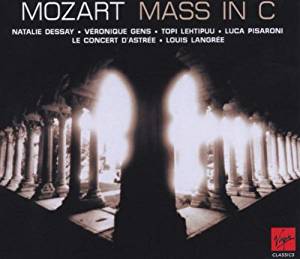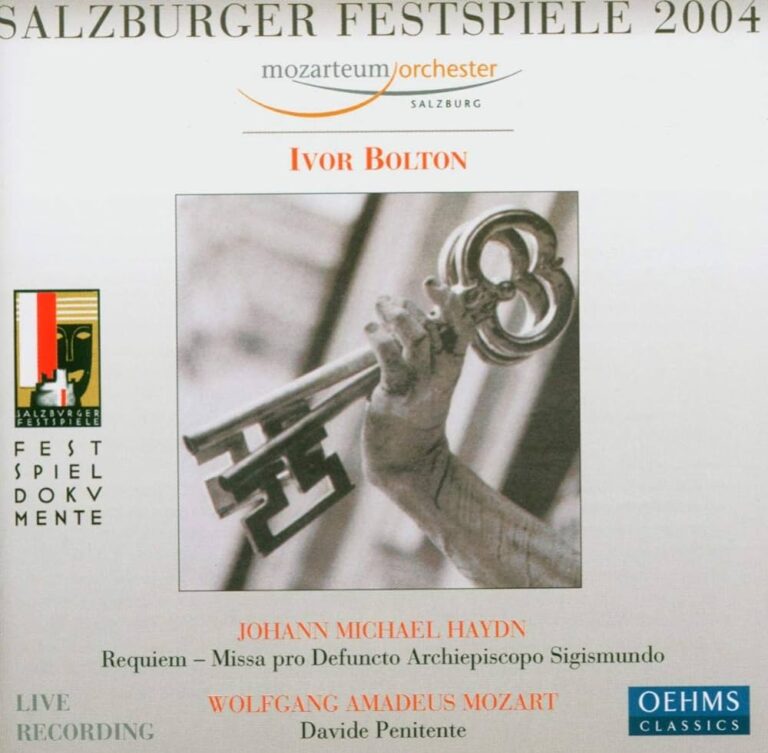CD: Mozart – Mass in C Minor K427
Mozart wrote his C-minor Mass to celebrate his hard-won marriage to Constanze and, though only half-finished, premiered it in Salzburg in 1783, taking her there to meet his family and to sing the first-soprano solo. (She must have been a formidable singer: it contains some of his most fiendishly difficult music.) Why Mozart did not complete the Mass remains unexplained; Alfred Einstein called it “a magnificent torso.” Like the Requiem, the Mass has inspired several attempts to “complete” it, but Louis Langrée, who conducts this recording, found them unsatisfactory and created his own version. Where Mozart omitted or sketched vocal and instrumental parts, Langrée reconstructed them, but unlike some editors did not substitute music from other pieces for the missing sections. Apart from some clumsy transitions and muddy counterpoint, his emendations work well. The Mass’s grand, solemn first chorus in somber C minor (Mozart’s favorite key for drama and tragedy) seems a strange opening for a hymn of thanksgiving, but the mood soon changes to serene affirmation with a very operatic soprano aria in E-flat major, and indeed C minor never returns. Mozart appears to be striving for a synthesis between the sacred and the theatrical: majestic choruses alternate with meltingly lyrical arias and coloratura showpieces full of leaps across a huge range; devout pleading and lamentatious chromaticism alternate with exaltation, praise, and gratitude; complex fugues reveal Mozart’s new-found fascination with counterpoint. The performance balances these contradictions admirably; chorus and orchestra are excellent; among the soloists, Veronique Gens stands out vocally and expressively. The “Masonic Funeral Music” combines elements of march and chorale, beginning in tragic C minor, but ending on a radiant C-major chord. –Edith Eisler
Soloists: Natalie Dessay, Veronique Gens, Topi Lehtipuu, Luca Pisaroni
Conductor: Louis Langree
Le Concert d’Astree
Audio CD (October 3, 2006)
Number of Discs: 1
Label: Virgin Classics
ASIN: B000EQHSEQ


